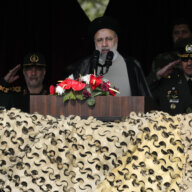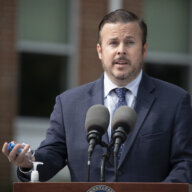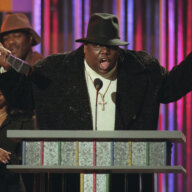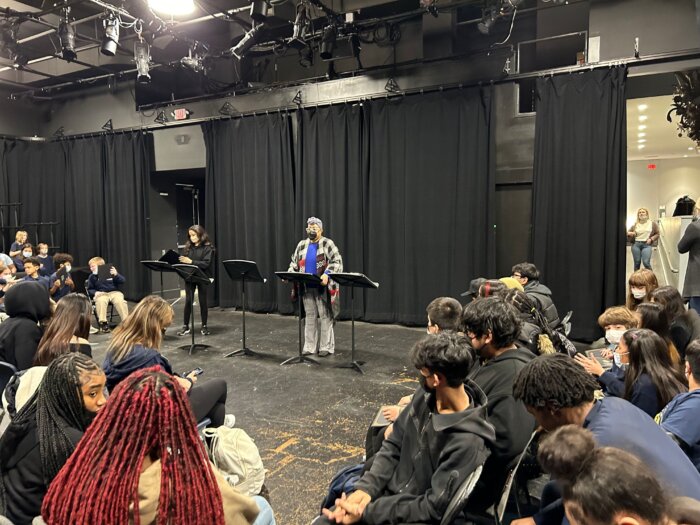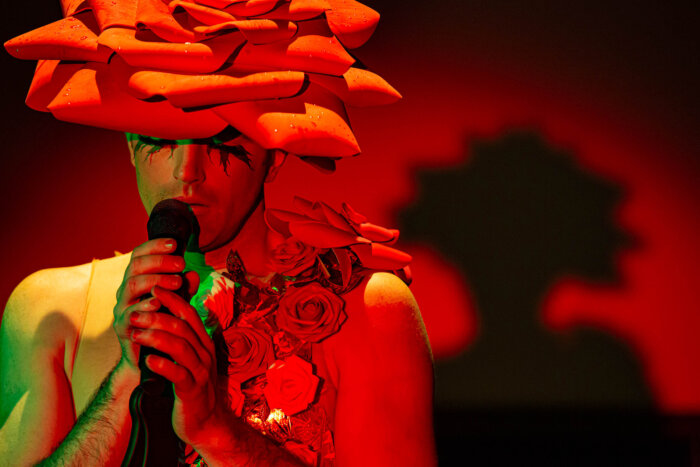Could you imagine performing for 24 hours straight? In Taylor Mac’s “A 24-Decade History of Popular Music’,” Mac does just that — with 24 musicians, 246 songs, a hundred local performers and hundreds of costume changes.
“It’s a lot of energy and time and it’s a lot to do to my body and all of my collaborators’ bodies,” Mac says. “There’s always an element of danger — will I be able to do it? I don’t know. So far we’ve been able to do it, but we’ll see!”
Taylor Mac began performing “A 24-Decade History of Popular Music’” over eight years ago at Joe’s Pub in New York City, although at the time, only the 1970s decade was covered.
“For every single decade, we do the bare minimum of rehearsal. I’d memorize the songs, Matt (Ray) would write some charts out for musicians and we would get together with everybody for a two-hour rehearsal and a two-hour show,” Mac says. “We just continued on like that out of order for six years until we finished making the whole thing.”

Last year, Mac performed the piece in a 24-hour long theatre marathon in Brooklyn, but for Philadelphia, the show will be presented in two 12-hour long pieces as part of PIFA, with the years 1776-1896 being covered this Saturday, June 2 and 1896-present being covered on Saturday, June 9.
Taylor Mac first got inspired to do the show in 1986, while attending the very first AIDS Walk in San Francisco.
“I had never met an out homosexual before,” Mac says. “I grew up in Stockton, CA where there weren’t out homosexuals at the time — people were pretty homophobic. The first time I saw an out homosexual, there were thousands at the AIDS walk. The reason they were together is that they were being torn apart by the epidemic — but they were building themselves up as they were being torn apart. That dichotomy was profound to me and stayed with me throughout my life.”
The idea of a community building themselves up as the result of being torned apart is what drives “A 24-Decade History of Popular Music.” Even Taylor Mac’s biggest musical inspirations for the show, Nina Simone and Patti Smith, play an unexpected role in this concept.
“I had them on shuffle one day and I thought, ‘Why is it that two of my favorite singers can’t sing? Nina Simone always sings just above the pitch and Patti Smith just speak-sings a lot of stuff. They can sing if they want to but they sometimes don’t feel like they want to. They’re telling stories and they’re not always perfect tones — inequality, sexism and sad things that are in the world. Those aren’t always going to be on pitch. They’re using their humanity and vulnerability to get at something. So I too wanted to make a show using some failure, some flaws and some calamity to build something.”
Mac also taps into superhuman talents for singing and performing — built from a lifelong career in the theatre — to captivate and engage audiences. Even when Mac’s voice starts getting tired from all that singing, however, it’s used as apart of the performance.
“Part of the job is to actually let myself fall apart because every decade is about a different community that is falling apart. But as they’re falling apart, they’re building themselves up,” Mac says. “I’m doing that and the audience is doing that, too We need to allow ourselves to deteriorate to build something out of it. It’s inspiring to me when my voice starts to fall apart. Then I’m like, ‘Okay, now how do we use this?’”
With so many songs in the show, it’s hard for Mac to pick just one number as a favorite, but the Walt Whitman decade ranks high on the list.
“We do a whole decade where pit Walt Whitman against Stephen Foster to see who should win the title of ‘Father of American Song. Walt Whitman called his poems songs so I treat them like songs — we don’t sing them but we say them!” Mac reveals. “We put them side-by-side next to these Stephen Foster songs. We treat it like a WWF smackdown and pass some popcorn to the audience. It’s rowdy and so much fun.”
Ideally, Taylor Mac would love audiences to experiences both weekends of “A 24-Decade History of Popular Music,” but you can do whatever works for your schedule.

“It is pretty spectacular to go through the entire history with us in two days — 240 plus years of popular music history,” Mac says. “But you don’t need to come to both shows to understand what we’re doing.”
In terms of what the audience should expect from the experience, anything you’re feeling is appropriate.
“I don’t like to tell people what to get from a theatre experience,” Mac says. “I do hope they come with openness, and instead of trying to decide if they like it or dislike it, come to consider it. So when they leave, they feel inspired to consider the work and their relationship towards each other.”
And if you think you can wait for the next time to see Taylor Mac perform “A 24-Decade History of Popular Music” — think again. This will be the last time the piece will be performed durationally.
“It’s our last big hurrah and I’m glad that we’re going to Philly where the country started,” Mac says. “We’ll do two-hour segments here and there but not like this.”
For more information and to buy tickets, visit: thekimmelcenter.org.











